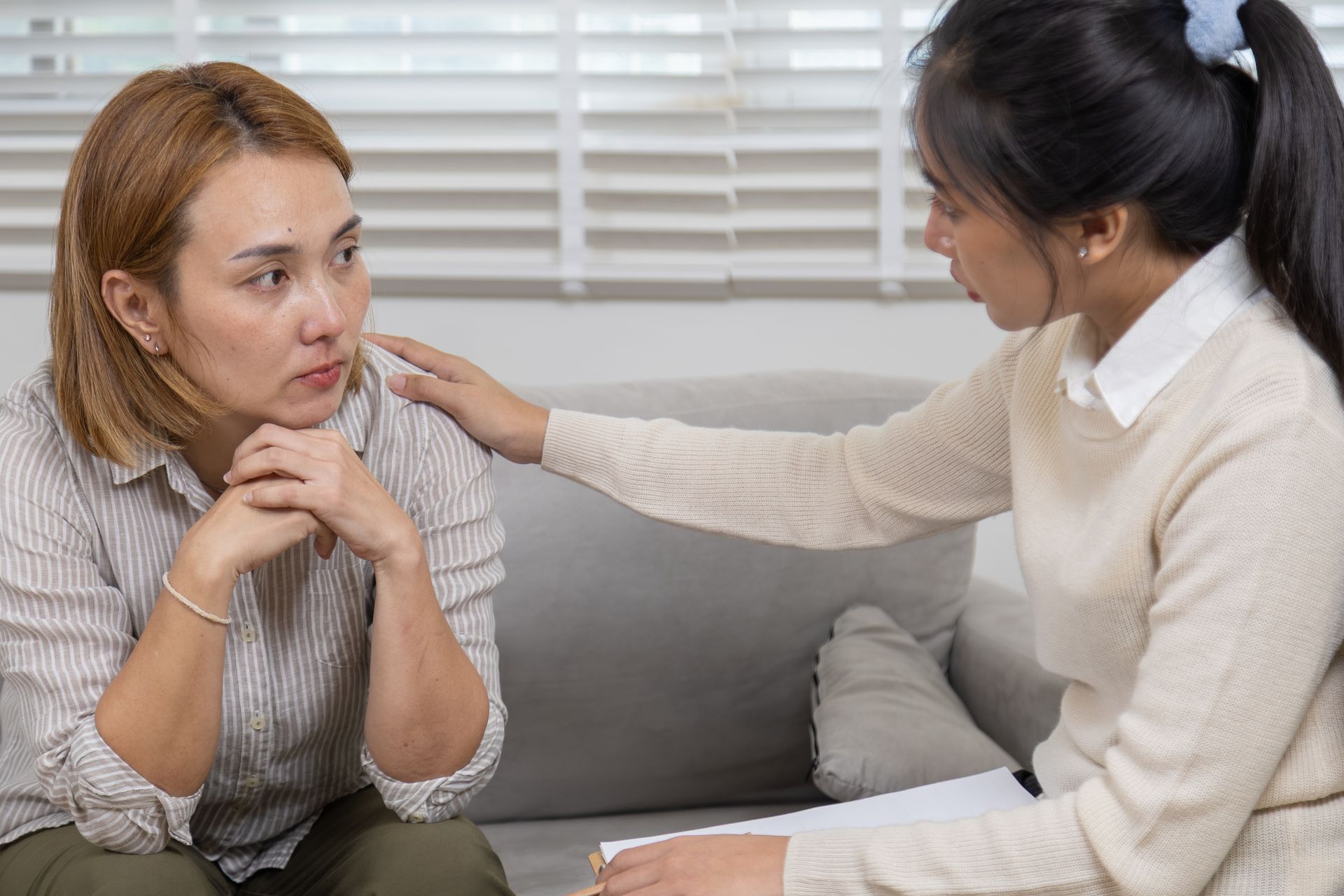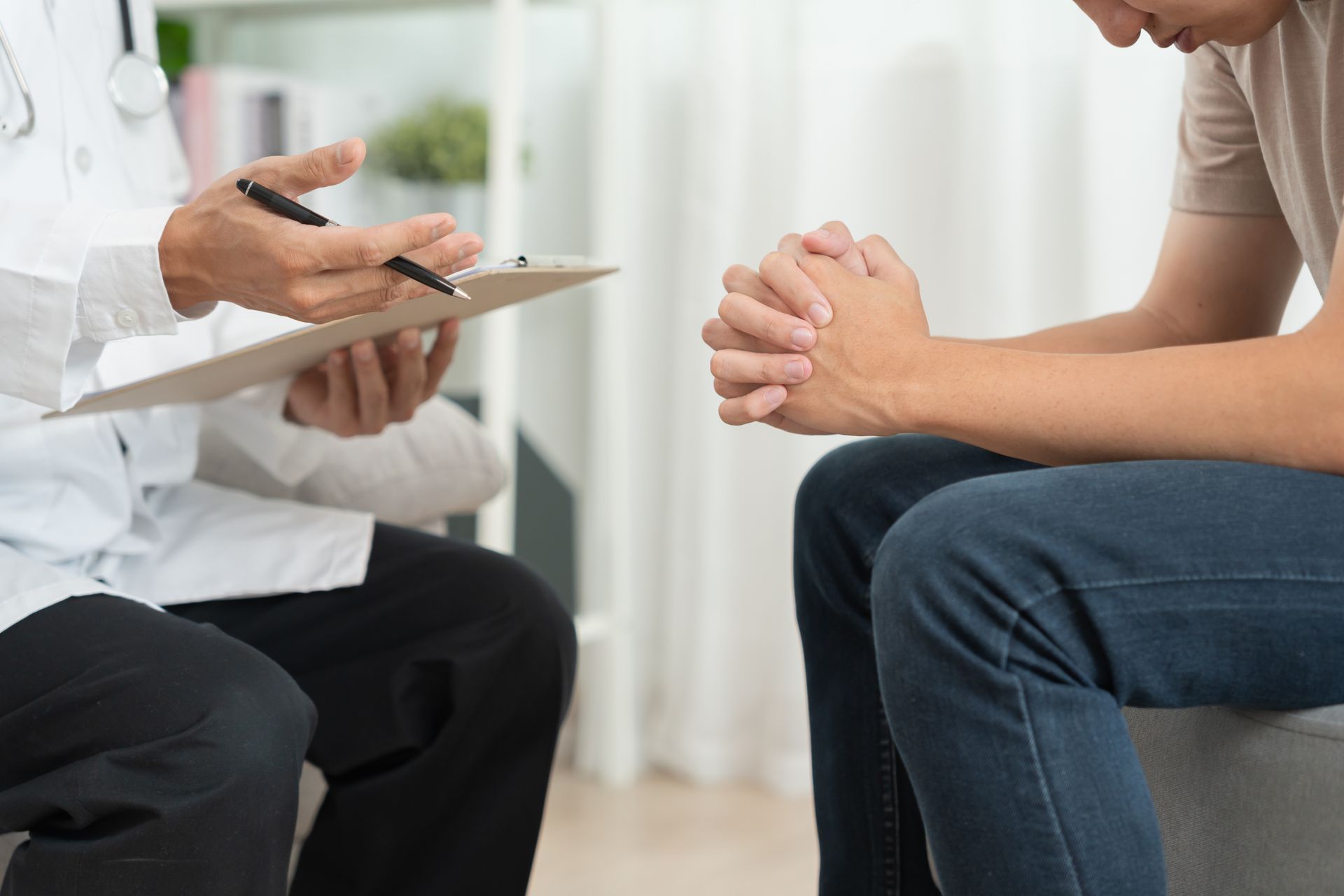Choosing Virtual Psychiatric Care for Parents Needing Same-Day Evaluations for Struggling Teen

As parents, we understand the weight of responsibility that comes with raising a teenager. It's a journey filled with joy, laughter, and countless milestones. However, it can also be incredibly challenging as we navigate the complexities of our teens' mental health.
When our children are struggling emotionally or mentally, finding help becomes our top priority. We want to ensure they have access to professional support and guidance as quickly as possible. But let's face it – traditional psychiatric care often involves long wait times and logistical hurdles that can make this already difficult journey even more overwhelming.
Thankfully, we live in an era where technology has revolutionized healthcare delivery in unimaginable ways. Introducing Virtual Psychiatric Care – a game-changing solution that offers same-day evaluations for struggling teens from the comfort and convenience of their own homes! In this blog post, we'll explore how virtual care is transforming the landscape of mental health support for parents seeking immediate assistance for their teenagers. So buckle up and join us on this empowering journey!
Understanding the Importance of Mental Health in Parents
As parents, our focus is often centered around the well-being and happiness of our children. We tirelessly work to provide them with love, support, and guidance as they navigate the challenges of growing up. However, it's crucial for us to remember that our own mental health plays a significant role in creating a positive environment for our families.
When we neglect or downplay our emotional well-being, it can have lasting effects on both ourselves and those around us. Our children are incredibly perceptive beings who pick up on even the subtlest shifts in mood or energy. If we're constantly stressed, overwhelmed, or struggling with unresolved issues, it can impact their sense of security and stability.
By prioritizing our mental health needs as parents, we not only model healthy behaviors but also create an atmosphere where open communication about emotions is valued. This fosters an environment where our kids feel comfortable expressing their own struggles without fear of judgment or shame.
Taking proactive steps to care for ourselves emotionally also allows us to show up fully present for our children's needs. When we prioritize self-care practices such as therapy sessions, regular exercise routines, mindfulness activities or pursuing hobbies that bring joy into our lives; we replenish ourselves mentally and emotionally - equipping us with the resilience and patience required to handle the ups and downs of parenting effectively.
So let’s embrace the importance of mental health in parenthood by acknowledging its impact on both ourselves and those dearest to us. By nurturing our own emotional well-being alongside that of our teens we lay a foundation for stronger family connections and pave a path towards a healthier future together
Challenges for Parents Seeking Psychiatric Care for Their Teens
Parents seeking psychiatric care for their struggling teens often face numerous challenges along the way. One of the major hurdles is finding a suitable and reputable mental health provider that specializes in adolescent psychiatry. The scarcity of such professionals can make it difficult to find one who is available and accepting new patients.
Another challenge lies in navigating the complex healthcare system, which may involve dealing with insurance companies, scheduling appointments, and coordinating care between different providers. This process can be overwhelming and time-consuming for parents already grappling with their child's mental health issues.
In addition, there is often a stigma attached to seeking psychiatric help. Parents may feel judged or ashamed when discussing their teen's mental health struggles with others. Breaking through this stigma requires courage and support from loved ones.
Furthermore, wait times for appointments with psychiatrists can be frustratingly long. When parents are desperately seeking help for their struggling teen, waiting weeks or even months for a
psychiatric evaluation can feel like an eternity.
Financial considerations also pose a significant challenge for many parents. Mental health services can be expensive, especially without adequate insurance coverage. Affordability plays a crucial role in determining whether parents are able to access timely care for their teens.
These challenges highlight the urgent need for accessible and efficient psychiatric care options tailored specifically to meet the needs of both parents and struggling teenagers alike. Virtual psychiatric care emerges as an innovative solution that addresses many of these obstacles by providing convenient access to specialized professionals from the comfort of home.
Introducing Virtual Psychiatric Care
In today's fast-paced world, parents face numerous challenges when it comes to seeking psychiatric care for their struggling teenagers. The traditional approach of scheduling an in-person appointment and waiting weeks or even months for an evaluation can be both frustrating and detrimental to the mental health of both parent and child.
Fortunately, virtual psychiatric care has emerged as a game-changer in this field. With the advancements in technology, parents now have access to same-day evaluations from the comfort of their own homes. This innovative approach utilizes video conferencing platforms that connect parents with qualified mental health professionals who specialize in adolescent psychiatry.
One of the key benefits of virtual care is convenience. Instead of taking time off work or school, parents can schedule appointments during their free time without having to worry about commuting or finding childcare. Additionally, virtual appointments eliminate geographical barriers, allowing families living in remote areas to access specialized care that may not be available locally.
Another advantage is flexibility. Virtual psychiatric care providers offer extended hours and weekend availability, making it easier for busy parents to find a time slot that fits into their hectic schedules. This flexibility ensures that there are no unnecessary delays in getting the help their teenager needs.
Privacy is also prioritized with virtual sessions. Parents can rest assured knowing that their conversations are confidential and secure within HIPAA-compliant platforms specifically designed for telehealth services.
When considering virtual psychiatric care options, it's important for parents to do thorough research and choose a reputable provider with licensed professionals who have experience working with adolescents facing various mental health challenges.
Benefits of Virtual Care for Parents
Virtual care has become increasingly popular in recent years, and it offers numerous benefits for parents seeking psychiatric care for their struggling teens. One of the key advantages is convenience. With virtual care, parents no longer have to navigate the challenges of finding a local psychiatrist with availability or taking time off work to bring their teen to appointments.
Another benefit is accessibility. Virtual care allows parents to access psychiatric evaluations and consultations from the comfort of their own homes, eliminating barriers such as transportation issues or limited resources in rural areas. This opens up opportunities for parents who might otherwise struggle to find mental health support for their teens.
Additionally, virtual care provides flexibility. Parents can schedule appointments that fit into their busy lives without sacrificing other commitments or responsibilities. This means they don't have to choose between prioritizing their child's mental health and fulfilling work or family obligations.
Furthermore, virtual care offers a sense of privacy and confidentiality that some parents may find comforting. By conducting sessions remotely, sensitive discussions about mental health can take place in a secure environment where both parent and teen feel more at ease opening up about their struggles.
Virtual care often provides quicker access to services compared to traditional in-person visits. Same-day evaluations are becoming more common through virtual platforms, ensuring that struggling teens can receive timely interventions when they need them most.
The benefits of virtual psychiatric care empower parents by providing convenient access, flexible scheduling options, increased privacy and confidentiality while offering faster evaluation times - all crucial aspects when it comes to supporting struggling teenagers' mental well-being.
How to Find a Reputable Virtual Psychiatric Care Provider
Finding a reputable virtual psychiatric care provider for your struggling teen is crucial. With the rise in demand for these services, it's important to choose a provider that meets your specific needs and offers high-quality care.
Start by researching different providers online. Look for well-established companies with positive reviews and testimonials from satisfied parents. Pay attention to any red flags or negative feedback as well.
Consider the qualifications and experience of the providers. Look for licensed psychiatrists or psychologists who specialize in adolescent mental health. It's also important to check if they have experience in providing virtual care specifically.
Take into account the range of services offered by each provider. Do they offer comprehensive evaluations, individual therapy sessions, medication management, or other specialized treatments? Assess whether their approach aligns with your child's needs and preferences.
Check if the providers accept insurance coverage or offer affordable pricing options. Virtual psychiatric care can be expensive, so it's essential to consider financial factors when making a decision.
Reach out to the selected providers directly with any additional questions you may have before making a final decision on which one best suits your family's needs.
Remember that finding a reputable virtual psychiatric care provider requires careful consideration of various factors such as reputation, qualifications, services offered, affordability, and direct communication with potential providers. Take your time during this process as your teen's mental health is at stake
Same Day Evaluations: A Game-Changer for Struggling Teens
When it comes to mental health, time is of the essence. For struggling teens and their parents, waiting weeks or even months for a psychiatric evaluation can feel unbearable. That's why same day evaluations have become a game-changer in the world of virtual psychiatric care.
Gone are the days when families had to endure long wait times and prolonged suffering. With same day evaluations, parents can now get their teen the help they need without delay. This timely access to care allows for early intervention and increases the chances of successful treatment outcomes.
One of the biggest advantages of same day evaluations is that they provide immediate relief for both parents and teens who are in crisis. Instead of feeling helpless and overwhelmed, families can take proactive steps towards finding solutions and creating a path towards healing.
In addition to providing quick access to care, same day evaluations also offer convenience. Virtual appointments eliminate travel time and allow families to consult with psychiatrists from the comfort of their own homes. This eliminates logistical challenges such as transportation issues or taking time off work/school.
Furthermore, virtual psychiatric care offers a level of privacy that may be appealing to both parents and struggling teens alike. The ability to have an evaluation from home reduces any potential stigma associated with seeking mental health support.
To find reputable providers offering same-day evaluations, it's important for parents to do some research beforehand. Look for providers with experienced psychiatrists who specialize in adolescent mental health issues. Check if they offer flexible scheduling options and ensure that they have proper licensing/certification.
Same day evaluations through virtual psychiatric care have revolutionized how struggling teens receive timely support for their mental health needs. By offering quick access, convenient appointments, increased privacy, these services are truly changing lives by helping teenagers regain control over their emotional well-being.
Final Thoughts
In today's fast-paced world, parents face numerous challenges when it comes to seeking psychiatric care for their struggling teenagers. The importance of mental health in parents cannot be overstated, as their well-being directly impacts the overall family dynamic.
Fortunately, virtual psychiatric care has emerged as a game-changer in providing same-day evaluations for teens in need. By leveraging technology and connecting with qualified professionals remotely, parents now have access to timely and convenient mental health support for their children.
The benefits of virtual care are undeniable. Parents can overcome geographical barriers and time constraints while ensuring their teen receives the attention they require promptly. With just a few clicks, families can connect with reputable providers who specialize in adolescent psychiatry.
When searching for a virtual psychiatric care provider, it is crucial to prioritize reputation and expertise. Look for licensed professionals with experience working with teenagers specifically. Consider seeking recommendations from trusted sources or reading online reviews before making your decision.
Choosing virtual psychiatric care offers an effective solution that meets the needs of both parents and struggling teens alike. It empowers families by providing them with accessible options during challenging times when immediate evaluations are necessary.
Remember that you are not alone on this journey - reaching out for help is a sign of strength as a parent. Virtual psychiatric care can provide the support needed to navigate through difficult periods successfully. Don't hesitate to explore this innovative approach if you find yourself needing same-day evaluations for your teenager's well-being.
Prioritizing your family's mental health will undoubtedly lead to positive outcomes and contribute to building stronger relationships within your household. Take advantage of these advancements in healthcare technology so that you can effectively address any concerns related to your teenager's emotional well-being.
By choosing virtual psychiatric care, you're taking significant steps towards improving your child's quality of life while ensuring peace of mind for yourself – all from the comfort and convenience of home.











